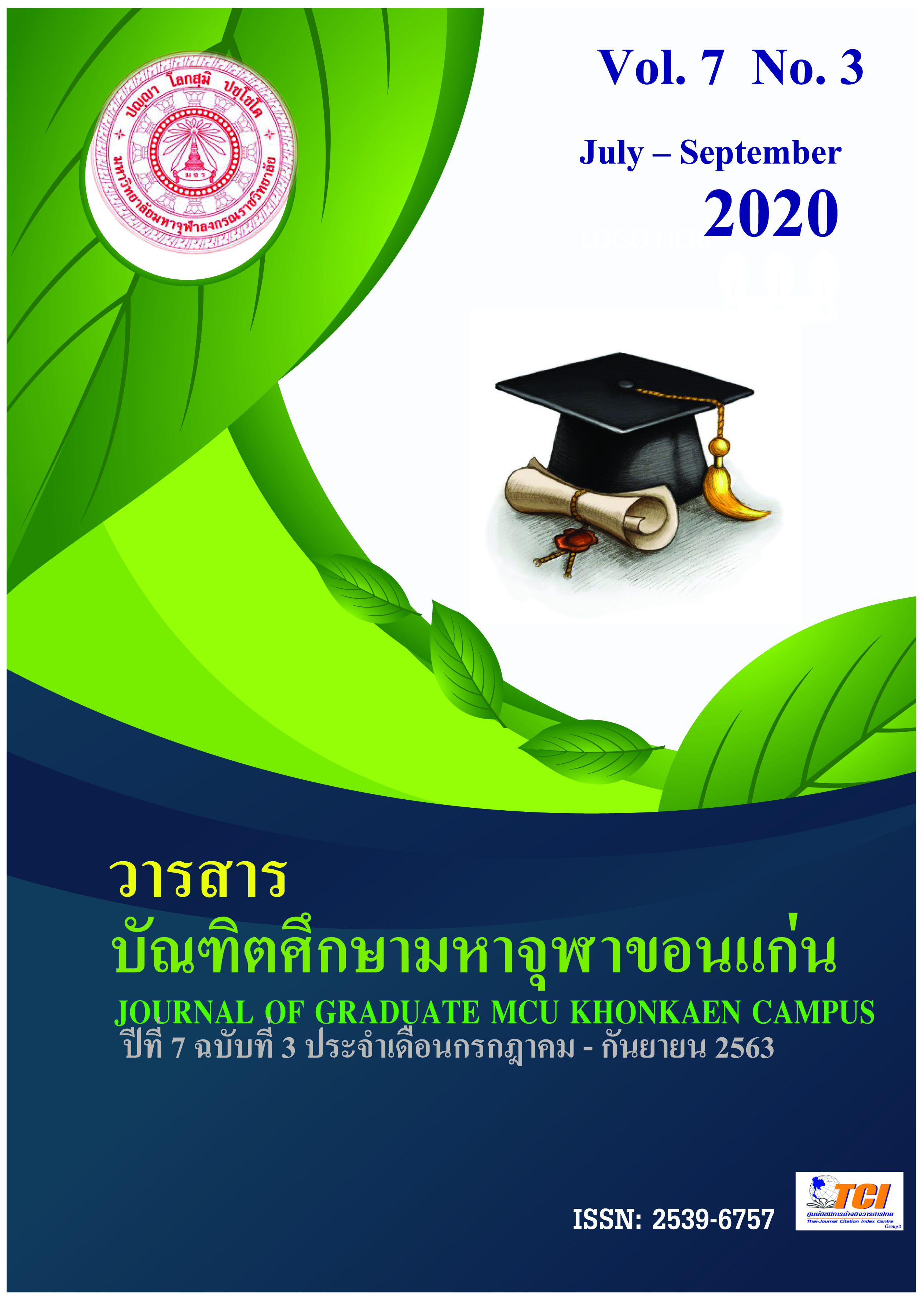THE COMPARATIVE STUDY OF BODY AND MIND IN THE THERAVADA BUDDHIST PHILOSOPHY WITH ARISTOTLE’S PHILOSOPHY
Main Article Content
Abstract
The objectives of this research were: 1) to study the body (kāya) and mind (citta) according to the views of Theravada Buddhist philosophy; 2) to study the body and mind according to Aristotle’s philosophy views; 3) to study the comparison of the body and mind according to Theravada Buddhist philosophy and Aristotle’s philosophy views. This study was conducted by means of the documentary research methodology through studying information from Tipiṭaka, documents and related research. The gathered data were analyzed by using descriptive analysis based on the inductive reasoning method.
The research results were as follows:
1) Based on Theravada Buddhist philosophy, the body is the concrete part while the mind is the abstract part. Both parts exist as a selfless element, changed according to the law of the Three Characteristics (Tilakkhaṇa). It is a process of mutual dependence in existence of mind and matter (nāma-rūpa) in terms of occurrence, standing and extinguishing based on the principle of Paṭiccasamuppāda Dhamma (Dependence Origination). Therefore, this appears as though it truly existed. Whenever the process of the mind and matter ends, the mind and matter will be emptied from self. The concepts of body and mind in Theravada Buddhist philosophy view is based on the theory of the selflessness (anattā).
2) According to Aristotle's point of view, the body is a concrete object. The mind is an abstract substance, including thought which is something that does not waste space, without weight and cannot be separated from the body. While the body is the substance, it is something that exists in space with weight, can be separated but without common sense. The body appearance has its origin in the consciousness (viññāṇa) with its ability to control over the body. In other words, the concept of body and mind in Aristotle's philosophy view is based on the self theory.
3) The body and mind in Theravada Buddhist philosophy and Aristotle philosophy views has the same characteristics, namely the body is a substance that consists of four elements: earth, water, wind and fire, while body is the habitat of the mind. The mind has abstract characteristics and exists in the body. It is able to perceive external contacts with the five sense fields. The difference of the body in Theravada Buddhist philosophy is that it is the meeting of unclean things, a place of diseases and a cause of suffering such as aging and dying. For the body in Aristotle's philosophy view, it originated from the human consciousness using the relationship between form and matter which cause things to come up. While the mind in Theravada Buddhist philosophy has its nature of rising and extinguishing at all times and can be developed to the ultimate goal or Nirvana, the mind in Aristotle's philosophy view has an immortal status of consciousness without any change.

